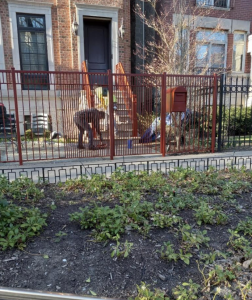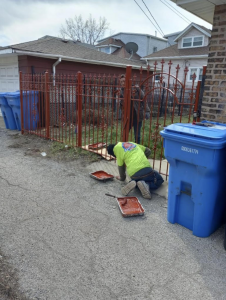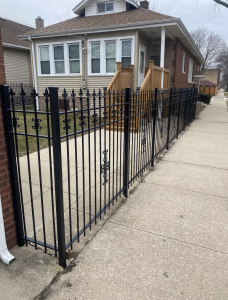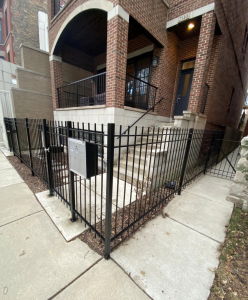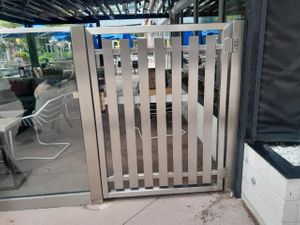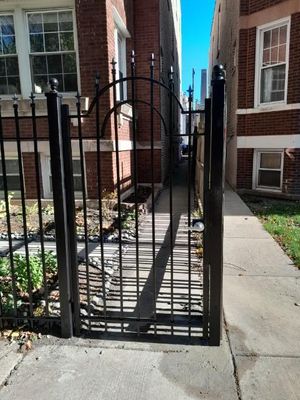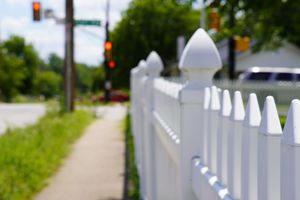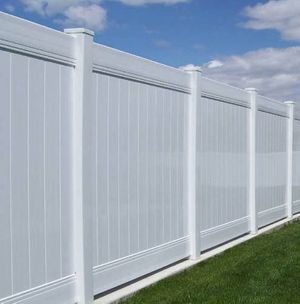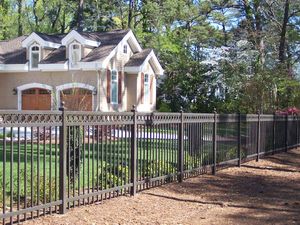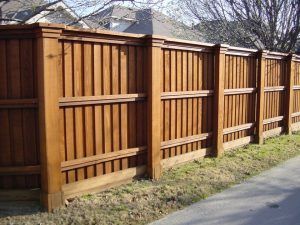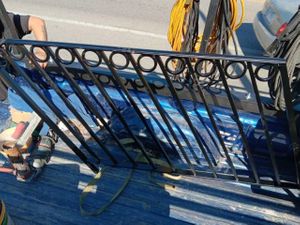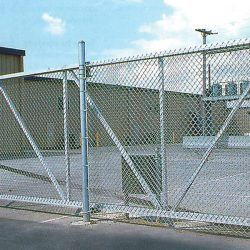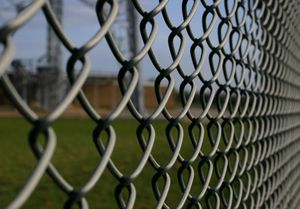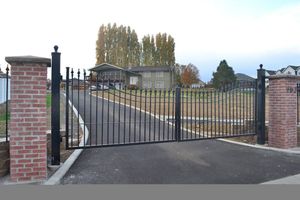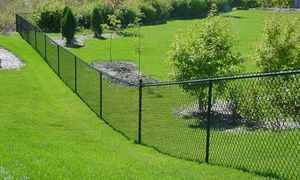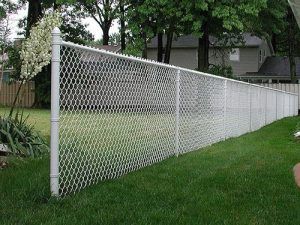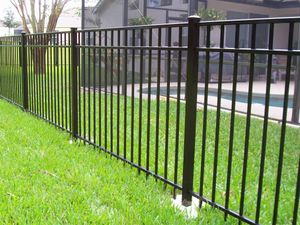Blogs
Can You Paint a Metal Fence? Tips for a Long-Lasting and Professional Finish
A metal fence adds durability and style to your property, but over time, it can lose its charm due to rust, weathering, or fading paint. If you're wondering whether you can paint a metal fence to restore its look, the good news is—you absolutely can! With the right preparation and materials, you can transform your fence and protect it from further damage.
Painting a metal fence isn't just about aesthetics; it also helps extend its lifespan by preventing rust and corrosion. Whether you're tackling this as a DIY project or considering professional help, understanding the process is key to achieving long-lasting results. So, if you're ready to breathe new life into your fence, let's explore what you need to know before picking up that paintbrush.
Why Paint A Metal Fence?
Painting a metal fence enhances its durability and appearance. Over time, exposure to weather causes metal fences to develop rust and dullness. Applying paint protects the surface from moisture, reducing the risk of corrosion.
Paint increases the lifespan of your fence. A properly painted finish creates a barrier against environmental damage, including UV rays and fluctuating temperatures. This preservation minimizes fence repairs and replacement costs.
moreWhat Paint to Use on Metal Fence: Best Options for Durability and Protection
Choosing the right paint for your metal fence can make all the difference in keeping it durable and looking great for years. A metal fence faces constant exposure to the elements, so you need a paint that not only enhances its appearance but also provides lasting protection against rust, corrosion, and weather damage.
With so many options available, it’s easy to feel overwhelmed. Should you go for oil-based or water-based paint? What about finishes and primers? Understanding what works best for metal surfaces ensures your fence stays vibrant and protected, no matter the conditions. Let’s explore the key factors to help you pick the perfect paint for your metal fence.
Importance Of Using The Right Paint For Metal Fences
Using the right paint for metal fences ensures long-lasting protection and appearance. Metal surfaces are prone to rust, corrosion, and peeling when exposed to moisture, UV rays, and fluctuating temperatures. Proper paint creates a durable barrier, preventing these issues.
Choosing incompatible paint can lead to poor adhesion, reducing the lifespan of the finish. Oil-based paints, for instance, offer superior protection in harsh outdoor environments but may crack over time if applied to improperly prepared surfaces. Conversely, water-based paints provide flexibility and eco-friendliness but may require multiple coats and regular maintenance.
moreWhat Are Chain Link Fences Made Of? Materials, Construction, and Benefits Explained
When it comes to durable and affordable fencing options, chain link fences are a popular choice. You’ve likely seen them around homes, schools, and commercial spaces, but have you ever wondered what makes them so reliable? Their unique construction and materials play a huge role in their strength and versatility.
Chain link fences are designed to withstand the elements while offering security and visibility. Understanding what they're made of can help you decide if this type of fence is right for your needs. From the metal framework to the protective coatings, every component is crafted to ensure longevity and functionality.
Overview Of Chain Link Fences
Chain link fences consist of a woven metal mesh, supported by a sturdy framework of posts and rails. The metal mesh is typically made from galvanized steel, ensuring resistance to rust and corrosion. Coatings such as vinyl or zinc enhance durability and protect against environmental wear. Fence installation involves setting metal posts into the ground, securing horizontal rails, and stretching the mesh tightly to ensure stability and function.
moreDo You Need a Permit to Put Up a Fence? Everything You Should Know
Putting up a fence might seem like a straightforward project, but it’s not always as simple as grabbing some tools and getting started. Depending on where you live, local regulations and zoning laws could require you to obtain a permit before installing your fence. Skipping this step might lead to fines or even having to take down your hard work.
You might wonder why a permit is necessary for something as common as a fence. The truth is, permits help ensure your fence meets safety standards, doesn’t interfere with property lines, and complies with neighborhood guidelines. Understanding when and why you need a permit can save you time, money, and potential legal headaches.
Before you dive into your fencing project, it’s essential to know the rules in your area. Whether you’re adding privacy, security, or curb appeal, being informed will help you build with confidence and avoid unnecessary complications.
Understanding Fence Permits
Installing a fence may require a permit depending on where you live. Local governments enforce these regulations to ensure compliance with zoning codes and property laws.
moreWhat Is the Best Wood for a Fence? Top Choices for Durability, Aesthetics, and Budget
Choosing the right wood for your fence is more than just a design decision—it directly impacts durability, maintenance, and overall curb appeal. With so many wood types available, it can feel overwhelming to decide which one suits your needs. Whether you're aiming for a rustic charm or a sleek modern look, the type of wood you pick plays a crucial role.
You want a fence that not only complements your property but also stands up to weather, pests, and time. From cedar's natural resistance to decay to the affordability of pine, each option comes with its own set of pros and cons. Understanding these differences will help you make a confident choice that balances style, performance, and budget.
Factors To Consider When Choosing Wood For A Fence
Selecting the right wood for your fence involves evaluating its long-term performance and visual appeal. Key considerations include durability, resistance to weather, upkeep needs, aesthetic qualities, and budget constraints.
Durability
Durability impacts the lifespan of a wood fence. Hardwoods, like oak and mahogany, tend to outlast softwoods but are pricier. Cedar and redwood offer a balance of strength and resistance to decay. Untreated woods may decay faster in moisture-prone areas.
moreShould My Fencing Company Prepare the Ground for Installation? Everything You Need to Know
When planning a new fence installation, you might wonder if your fencing company should handle ground preparation. It’s a crucial step that can affect the durability and appearance of your fence, but not all companies include this service in their process. Knowing what to expect can save you time, money, and potential headaches down the road.
Ground preparation involves clearing debris, leveling uneven terrain, and ensuring the soil is ready for secure post placement. While some fencing companies offer full-service installation, others may expect you to handle prep work yourself or hire additional help. Understanding your role versus the company's responsibilities is key to a smooth installation experience.
By clarifying who’s responsible for ground preparation, you’ll avoid miscommunication and ensure your project stays on track. Whether you’re installing a privacy fence or decorative panels, proper groundwork is the foundation for a fence that stands the test of time.
Importance Of Ground Preparation For Fencing
Preparing the ground is a critical step in ensuring a stable and long-lasting fence. Proper ground preparation reduces installation challenges and enhances structural integrity.
moreDo Fence Installers Grade Before They Install? Avoid Surprises with Proper Preparation
When planning a new fence, you might wonder if the ground needs to be perfectly level before installation begins. Uneven terrain can pose challenges, so it's natural to ask whether grading is part of the process. After all, a sturdy and visually appealing fence starts with proper preparation.
Understanding what fence installers typically handle can save you time and frustration. While some professionals include grading in their services, others may leave it to you or a separate contractor. Knowing what to expect ensures you’re fully prepared for the project and helps avoid unexpected costs or delays.
Importance Of Proper Land Grading For Fence Installation
Proper land grading ensures a solid foundation for your fence and helps mitigate long-term structural and environmental issues. Addressing terrain irregularities improves fence longevity and maintains functional aesthetics.
How Grading Affects Fence Stability
Land grading enhances fence stability by providing an even surface for posts and panels. Uneven terrain causes inconsistent post depths, leading to structural weakness and alignment issues. A level grade reduces strain on fence materials, minimizing warping or shifting over time.
moreHow Long Will a Wood Fence Last? Lifespan Factors, Maintenance Tips, and Replacement Signs
When you invest in a wood fence, you’re not just adding charm and privacy to your property—you’re making a long-term commitment. But how long will that fence stand the test of time? The lifespan of a wood fence can vary widely, and it depends on several factors, from the type of wood to how well it’s maintained.
Understanding what impacts your fence’s durability can save you money and effort in the long run. Whether you’re planning for a new installation or looking to extend the life of your current fence, knowing what to expect helps you make smarter decisions. Let’s explore what influences a wood fence’s longevity and how you can keep it strong for years.
Factors That Affect A Wood Fence's Lifespan
Several factors determine how long a wood fence lasts. Recognizing these can help you maximize its durability and maintain its visual appeal.
Wood Type And Its Impact On Longevity
The wood species used significantly affects durability. Cedar and redwood resist rot and insects better than pine or spruce, typically lasting 20-30 years when properly maintained. Pressure-treated wood often lasts 15-20 years due to added protection against decay. Hardwood options like oak are dense and durable, extending their lifespan further but at a higher cost.
moreHow Much Does a Wrought Iron Fence Cost? Complete Guide to Pricing & Budgeting
When you're considering adding a touch of elegance and durability to your property, a wrought iron fence often comes to mind. Its timeless design and unmatched strength make it a popular choice for homeowners and businesses alike. But before diving into this investment, you’re probably wondering—how much will it cost?
The cost of a wrought iron fence can vary based on several factors, including the size, design, and installation requirements. Understanding these elements helps you plan your budget effectively and ensures you get the best value for your money. Whether you’re looking for added security, curb appeal, or both, knowing what to expect can make the process smoother and more rewarding.
Factors Affecting the Cost of a Wrought Iron Fence
Comparing the cost of a wrought iron from wooden fence and vinyl fence helps you make an informed decision based on durability, maintenance, and budget.Understanding these factors helps you estimate expenses more accurately and make informed decisions.
moreIs Wood Fence Cheaper Than Vinyl? Cost Comparison, Maintenance & Longevity Explained
When you're planning to install a fence, cost is often one of the first things you consider. With so many materials available, it's easy to feel overwhelmed trying to decide what fits your budget without sacrificing style or durability. Wood and vinyl are two of the most popular options, each with its own price point and advantages.
You might wonder if a wood fence is the more affordable choice compared to vinyl. While wood often has a lower upfront cost, there are other factors like maintenance and longevity that can impact the overall expense. Understanding these differences can help you make the best decision for your property and wallet.
Factors Influencing Fence Costs
Fence costs depend on various elements, including material, installation, and maintenance. Understanding these factors helps determine whether wood or vinyl fits your budget better.
Material Costs
Material selection significantly affects residential and commercial fence costs. Wood fences typically feature lower upfront material costs. For example, treated pine or cedar ranges from $10 to $30 per linear foot, depending on type and quality. Vinyl fences cost more initially, averaging $20 to $40 per linear foot, but they're known for higher durability and resistance to external damage.
moreHow to Install Wrought Iron Fence: Step-by-Step Guide for a Durable and Elegant Outdoor Space
A wrought iron fence adds elegance and durability to your property while providing security and a timeless aesthetic. Whether you're enhancing curb appeal or creating a defined boundary, installing one yourself can be a rewarding project that saves money and ensures a custom fit for your space.
For a flawless and long-lasting installation, professional expertise is key. With the right tools, materials, and a well-planned approach, you can ensure your outdoor area is enhanced with a stunning and durable fence. Understanding the process beforehand helps streamline installation and prevents common mistakes.
Materials And Tools Needed
Gathering the correct materials and tools ensures an efficient installation process for your wrought iron fence. Organize everything at the outset to avoid interruptions.
Essential Materials
Wrought iron panels and posts: Select panels that match the style and dimensions you prefer.
Concrete mix: Support fence posts securely with a concrete footing.
Gravel: Add a base layer for drainage under the concrete.
more
How Much Does It Cost to Install a Chain Link Fence? Complete Pricing Guide
When it comes to fencing options, chain link fences are a popular choice for their affordability and durability. Whether you're securing your backyard, creating a safe space for pets, or marking property boundaries, a chain link fence gets the job done without breaking the bank. But how much does it really cost to install one?
Understanding the cost involves more than just the price of materials. Factors like fence height, length, labor, and additional features can all impact the final price. If you're considering this project, knowing what to expect can help you budget wisely and avoid surprises.
Let’s dive into what goes into the cost of installing a chain link fence and how to make the most of your investment.
Factors Affecting Chain Link Fence Installation Costs
Several variables impact the total cost of installing a chain link fence. Understanding these factors helps in planning expenses effectively and avoiding hidden surprises.
Material Costs
Material costs significantly influence the overall price. Chain link fencing materials include mesh, posts, rails, and fasteners. Standard galvanized mesh starts around $5-$15 per linear foot, while vinyl-coated options range from $10-$25. Additional items like post caps and tension wire also add to the expense.
moreIs Chain Link Fence Cheaper Than Wood? Cost Comparison & Key Factors to Consider
Choosing the right fence for your property can feel overwhelming, especially when balancing cost and functionality. Among the most popular options, chain link and wood fences often stand out for their practicality and versatility. But when it comes to affordability, which one truly fits your budget?
You might assume wood fences, with their classic aesthetic, are pricier than chain link, known for its simplicity and durability. However, factors like installation, maintenance, and lifespan can significantly impact the overall cost. Understanding these differences will help you make a confident and cost-effective decision for your fencing needs.
Comparing Chain Link Fences And Wood Fences
Chain link and wood fences provide different benefits depending on budget, purpose, and preferences. Understanding their key features helps you decide which option suits your property best.
Overview Of Chain Link Fences
Chain link fences offer a cost-effective and durable solution for property boundaries. They typically consist of steel wire woven into a diamond pattern and supported by metal posts. These fences resist corrosion when galvanized or coated, ensuring longevity in various weather conditions.
moreDo Wrought Iron Fences Rust? Prevention, Maintenance, and Repair Tips
When choosing a fence for your property, durability and appearance are key factors. Wrought iron fences are a popular choice thanks to their timeless elegance and strength. However, you might wonder if these fences are prone to rust and how that could affect their longevity.
Rust can be a concern for any metal exposed to the elements, but there are ways to prevent or manage it. Understanding how wrought iron reacts to moisture and weather conditions can help you make an informed decision and keep your fence looking its best for years.
What Are Wrought Iron Fences?
Wrought iron fences are known for their strength and timeless design. These fences combine practicality with aesthetic value, making them a popular choice for various properties.
Characteristics Of Wrought Iron
Wrought iron is durable and malleable, allowing intricate designs without compromising strength. Its density provides resilience against physical damage, making it ideal for security purposes. However, exposure to moisture can lead to rust formation without proper maintenance. This metal is heavier than alternatives like aluminum, offering enhanced stability. It also accepts coatings like paint or powder finishes, increasing both protection and visual appeal.
moreHow to Install Chain Link Fence: A Step-by-Step Guide for DIY Beginners
Installing a chain link fence is a practical and cost-effective way to secure your property while maintaining visibility. Whether you're enclosing a backyard, garden, or business space, this durable fencing option offers both functionality and simplicity. With the right tools and guidance, you can tackle this project yourself and save on professional installation costs.
You don't need to be a seasoned DIY enthusiast to install a chain link fence. By following a step-by-step approach and preparing properly, you'll have a sturdy and reliable fence in no time. From marking your property lines to setting the posts and stretching the mesh, the process is straightforward when broken into manageable steps. Ready to get started? Let’s dive into the essentials.
Materials And Tools
Proper materials and tools are essential for successfully installing a chain link fence. Gather all items before starting to ensure a smooth process.
Materials You Will Need
Chain link mesh: Select the length and height suitable for your property.
Fence posts: Include terminal, line, and corner posts for structural stability.
more
How Can I Find a Reputable Fence Installer in Chicago
Are you in need of a new fence for your property in Chicago but unsure of where to find a reputable installer? Look no further!
We will discuss the importance of hiring a reputable fence installer, like Americana Iron Works & Fence what to look for in a reliable professional, where to find trustworthy installers in Chicago, questions to ask potential installers, what to expect during the installation process, and tips for working with a reputable fence installer.
Stay tuned for valuable insights and expert advice on finding the perfect fence installer for your needs!
Why is it Important to Find a Reputable Fence Installer?
Finding a reputable fence installer is crucial for ensuring that your fencing project is completed with the highest standards of quality and customer satisfaction. A reputable installer will provide professional services, trustworthy guidance, and a seamless consultation process to address your specific needs.
Their expertise in fence installation not only guarantees a durable and visually appealing result but also ensures that the project is completed within the stipulated timeframe. By hiring a reputable professional, you are investing in the longevity and functionality of your fence, as well as the overall aesthetic appeal of your property. A reputable installer prioritizes open communication and customer feedback, resulting in a collaborative and satisfactory experience for all parties involved.
moreDo I Need a Permit to Install a Fence in Chicago
Curious about whether you need a permit to install a fence in Chicago? Look no further!
We explore the different types of fences that require a permit, exemptions for fencing permits, how to obtain a fencing permit, and the requirements for fencing in the city.
We also discuss the consequences of not obtaining a permit and why it's crucial to follow the proper procedures when installing a fence in Chicago. Let's dive in!
Do I Need a Permit to Install a Fence in Chicago?
Before proceeding with any fencing construction in Chicago, it is crucial to understand the regulations and requirements regarding permits for fence installation.
Obtaining a permit for installing a fence in Chicago is not just a mere formality; it is a legal necessity that ensures your construction complies with city regulations and zoning laws. The process of obtaining a permit involves submitting detailed plans of the proposed fence, including its height, location, and materials to be used. The city authorities review these plans to verify that the fence meets safety standards and does not violate any property boundaries. By obtaining a permit, you not only avoid potential fines or legal issues but also contribute to maintaining a harmonious urban environment in compliance with construction regulations.
moreAre you looking to upgrade your fencing in Chicago but not sure where to start?
Are you looking to upgrade your fencing in Chicago but not sure where to start?
Choosing the right fence material is crucial for enhancing the curb appeal of your home, ensuring privacy, and security.
We will explore the most popular fence materials in Chicago, including wood, chain link, vinyl, and wrought iron
Discover the factors to consider when selecting a fence material, along with the pros and cons of each option. Find the perfect fit for your Chicago home!
Factors to Consider when Choosing Fence Material
When selecting the right fence material, there are several crucial factors that should be taken into account to ensure the perfect balance of aesthetics, functionality, and durability for your property in Chicago.
Considering the material popularity is essential as it can impact the overall look and feel of your property. For instance, wood fences are a popular choice for residential properties due to their natural appeal, while chain-link fences are commonly used for commercial purposes because of their durability and low maintenance requirements.
more
